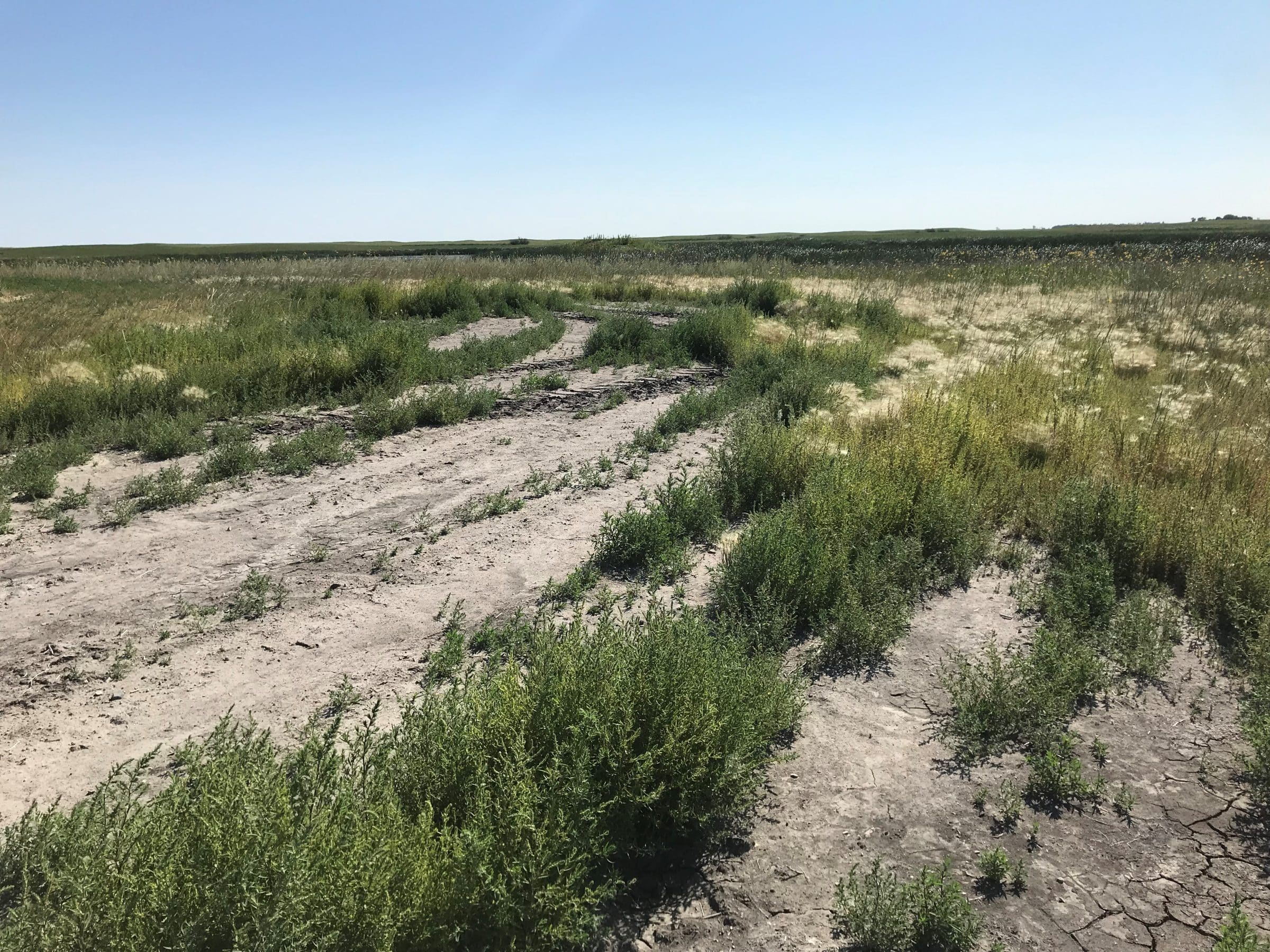News
September 23, 2025
Control Kochia, Cut Losses
Ducks Unlimited Canada’s Fall Marginal Areas Program gets seed in the ground, cash in your pocket
Following this year’s harvest, tough, waist-high kochia can be seen lingering in the corners and margins of an increasing number of grain fields—unsightly reminders of acres that refused to pay their way.
Kochia is spreading fast across the Prairies. Naturally competitive and drought-tolerant, it’s also becoming increasingly resistant to common herbicides, including glyphosate and Groups 2, 4, and 14. And researchers are tracking its steady northward march into new areas each season.
But kochia isn’t just a weed problem—it’s often a sign of something deeper. “Kochia tends to thrive in saline or otherwise marginal soils,” explains Sam Robinson, researcher with the Prairie Precision Sustainability Network (PPSN) and Ducks Unlimited Canada’s Institute for Wetland and Waterfowl Research. “Across the Prairies, we estimate roughly 7.3 million acres of farmland are considered marginal—that’s about 13 acres in every quarter section—areas that simply don’t return on investment despite inputs and management.”
According to Robinson, “These consistently low-yielding acres really don’t pay. On average, prairie farmers lose about $68 per acre trying to grow annual crops in these zones. Meanwhile, perennial forages offer another tool in the toolbox—helping producers reclaim unproductive acres, cut input costs, and suppress weeds like kochia.”
This fall, Ducks Unlimited Canada (DUC) is helping producers make that shift through its Fall Marginal Areas Program. The program coordinates custom forage seeding and connects participants with federal and provincial funding, offering up to $390 per acre in financial incentives.
With high input costs, expensive land, and volatile markets, reclaiming low-performing acres with perennial forages offers a practical, long-term solution. It’s a one-time investment that restores productivity, reduces weed pressure, and frees up time and resources for more profitable parts of the farm.
Interested in reclaiming your margins?
Contact Ducks Unlimited Canada at 1-866-252-3825 or du_regina@ducks.ca to learn more about the Fall Marginal Areas Program.

